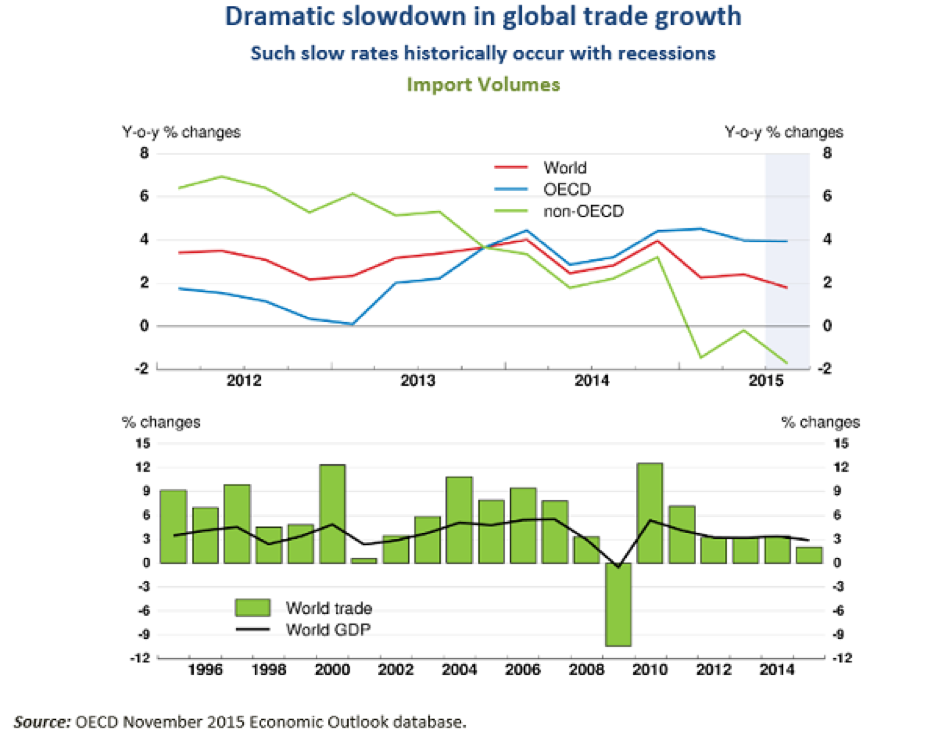A new report from the Organization for Economic Co-operation and Development is warning that global trade is slowing to levels usually found during global recessions. While no recession is forecast at this point, the slowdown in trade will weigh on global economic growth, which is running well below its long-term average.
In a report released Monday, the OECD cut its forecast for global economic growth from 3.0 percent to 2.9 percent in 2015, and from 3.6 percent to 3.3 percent in 2016. The numbers mark a decline from an interim report the organization issued in September and a sharp reduction from last November, when the group initially pegged growth for 2015 at 3.7 percent.
Related: Hillary Clinton May Be the Biggest Winner from the Blowout October Jobs Report
Global trade has been growing slowly for the past few years, and appears to have stagnated in the last 12 months. The growth of world trade will fall below 2 percent in 2015 and actually shrink in nations outside the OECD.

“The slowdown in global trade and the continuing weakness in investment are deeply concerning. Robust trade and investment and stronger global growth should go hand in hand,” Angel Gurria, secretary general for the 34-member nation OECD, said during a speech presenting the findings in Paris.
Economic growth in the United States should reach 2.4 percent this year and 2.5 percent next year, according to the new report. The OECD originally has growth at 2.6 percent for 2016. The group foresees 2.4 percent growth in 2017. That’s roughly in line with other economic outlooks, including one by the nonpartisan Congressional Budget Office.
But other countries, including Russia and to some extent China, may have a bumpier path.
Related: Trump’s Case Against the Fed Is Not Completely Crazy
China comes off relatively well in the new analysis, at least for the time being. The OECD raised its 2015 growth forecast from 6.7 to 6.8 percent in 2015 and maintained its 2016 prediction at 6.5 percent. However in 2017, Beijing could see its growth drop back to 6.2 percent.
The expected drop-off would be especially problematic for other leading economies, which have relied on China to be the engine for global growth in recent years. The new data chalks the decline up to the country’s shift away from its massive infrastructure building toward an economy centered on consumer goods and services.
While China’s possible softening is cause for concern, Russia is already in hot water. Bluntly declaring that the “economy is in recession” in part due to the huge depreciation of the ruble, the OECD says Russian gross domestic product is on track to drop 4 percent in 2015 and 0.4 percent next year.
Related: Trump’s Case Against the Fed Is Not Completely Crazy
Russia energy consumption is also a concern, according to the report.
It calls Russia “one of the world's largest emitters of greenhouse gases.”
“Low air quality contributes to a high premature mortality rate. Attaining the goal of a 40 [percent] reduction of the energy intensity of GDP from 2008 levels by 2020 will be challenging,” the report states.
The OECD suggests a number of corrective steps Moscow and others could take to recover, such as instituting reforms in education and labor markets.





